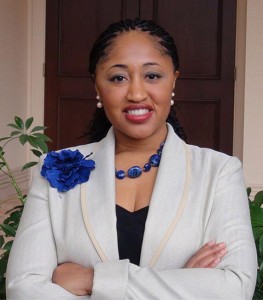 Community Matters is a biweekly opinion column. The views expressed are solely the author’s.
Community Matters is a biweekly opinion column. The views expressed are solely the author’s.
I feel a shift in Arlingtonians’ desire to increase communication.
Whether it’s reaching out to our government officials, advocacy organizations, fellow residents, or media platforms, there is less acceptance of the status quo, and more impetus to tell someone how we feel.
Since we must often communicate virtually, we have to find a way to communicate effectively, including expressing dissent, sadness, and joy, all through computer screens. Some of us may find this more difficult, and some may actually prefer the lack of in person communication.
In recent weeks I have also been more aware of an increase in general, as well as the facets of dissent. Brene Brown’s recent conversation with President Barack Obama focuses on the tension of opposites, or the ability to hold two competing ideas in our minds. This is an important aspect of leadership, and if we can hold more than our own ideas in our minds when we disagree, it will help us reach more viable, long-term solutions.
As our communication changes, how we disagree might also change. In today’s culture, it’s easier to disagree anonymously and online. Researcher Arthur Santana showed that anonymous comments on news sites can be classified as “uncivil” around 53% of the time, compared to just 29% for not anonymous comments. Psychologist Sherry Turkle says we are rude because we tend to dehumanize each other online. As we don’t see the immediate effect of our words on the other person, we don’t choose our language carefully.
We should all consider ways that we can disagree more effectively, and remember that we are communicating with a person with thoughts, feelings, and sometimes, good ideas.
Start interactions by connecting, and truly seeing others as people. While this is simply good manners, some people respond better to social connections as opposed to plunging into the topic of the discussion. Especially with virtual communication, it may be even more important to try to connect to see how people are really doing as people, before any conversation, whether there is discord or not.
Look at the situation holistically. While your perspective is just as important as anyone else’s, I would encourage those who are truly concerned about moving the whole community forward, to think about other perspectives and the big picture. Consider thinking about how we can work together for a common, larger solution, and factor that into your ideas.
We need better arguments. In his October 2020 article, Erik Gross notes that, “better arguments are about prioritizing relationships and listening passionately, paying attention to context, embracing vulnerability, and making room to transform. Arguing, if done right, can humanize those that we disagree with and bring people together in the common pursuit.”
Think. Dr. Martin Luther King. Jr. said, “Rarely do we find men who willingly engage in hard, solid thinking. There is an almost universal quest for easy answers and half-baked solutions. Nothing pains some people more than having to think.” In order to disagree respectfully, we have to think more than if we speak from the top of our heads.
We are on the cusp of tremendous growth and change in Arlington. These daily interactions as we seek to embrace new people and ideas will inevitably result in conflict. When we choose to intentionally and respectfully disagree, and dare to take the time to see others as people, and everything they bring to the table, we create a better Arlington for us all.
Krysta Jones has lived in Arlington since 2004 and is active in local politics and civic life. This column is in no way associated with or represents any person, government, organization or body — except Krysta herself.

